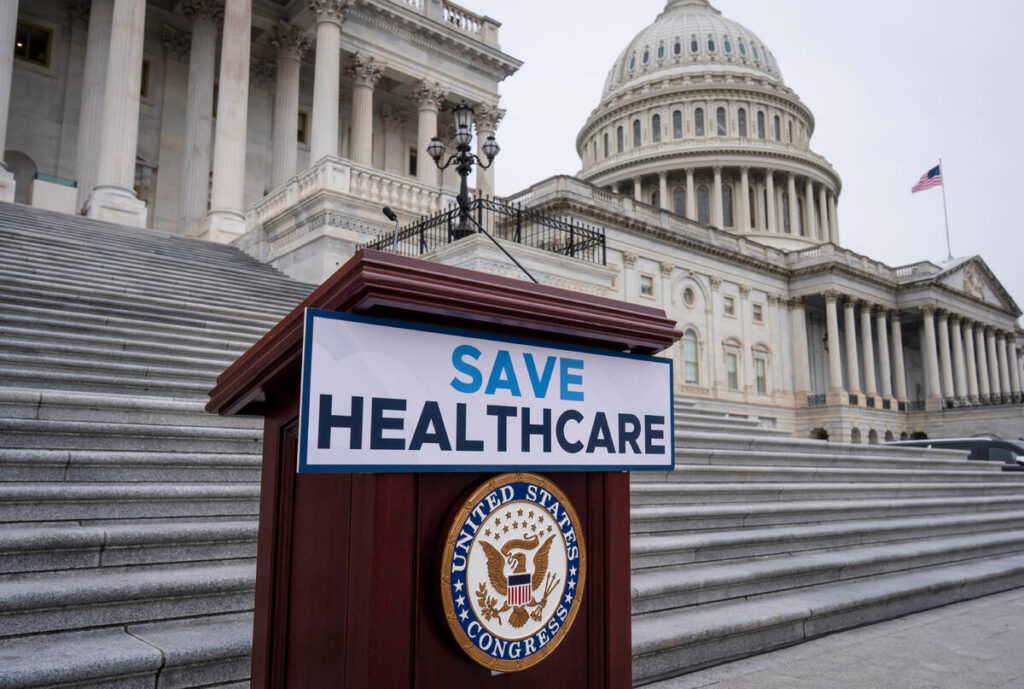Health insurance spikes for millions are at the heart of the government shutdown
Summary
The U.S. government shut down amid a partisan fight over extending enhanced Affordable Care Act (ACA) tax credits and reversing Medicaid cuts included in a recent Republican tax-and-spending bill. The subsidies, introduced during the COVID-19 era and expanded in 2021, are slated to expire at the end of 2025. Analyses show premiums for many people would more than double next year if Congress does not act.
Democrats demand immediate extension of the subsidies and a rollback of Medicaid reductions; Republicans want a short-term funding measure first and say health negotiations can follow. The dispute centres on both near-term premium spikes and longer-term changes to Medicaid that could leave millions uninsured.
Key Points
- Enhanced ACA tax credits that expanded and subsidised coverage are due to expire at the end of 2025.
- KFF analysis estimates average annual premiums for subsidised enrollees would rise by about 114% (roughly $1,016) next year without extension.
- A record 24 million people have enrolled through the ACA exchanges, thanks in large part to the subsidies.
- Republicans’ summer bill includes over $1tn in Medicaid and food-aid cuts over a decade, which the CBO projects could cause about 10 million more people to become uninsured.
- Democrats insist subsidy extensions and Medicaid protections be part of any funding deal; Republicans insist on reopening the government first and offer to negotiate on subsidies afterwards.
- Some Republican claims about providing free care to undocumented immigrants are factually incorrect — those groups are not eligible for ACA exchange plans or Medicaid.
Context and Relevance
This story matters because it links a routine fiscal process — passing stopgap funding — to immediate, tangible impacts on health care costs for millions. If Congress fails to extend the subsidies, many middle- and low-income households face steep premium hikes and reduced access to care. The Medicaid changes embedded in recent legislation add a longer-term risk of larger uninsured populations and tighter state budgets.
The dispute illustrates a broader trend: fiscal fights are increasingly intertwined with social-policy outcomes, so short-term shutdowns can trigger long-term effects in healthcare markets and state budgets.
Author Style
Punchy: this piece cuts to the bone — the shutdown isn’t just about abstract spending numbers, it’s about people getting hit with much higher premiums and millions potentially losing coverage. Read the detail if you need to understand who’s affected and why the political timing matters.
Why should I read this?
Because if you or anyone you know pays for health cover through the ACA or relies on Medicaid, this is not theatre — it could change your bills and access to care. The article breaks down who pays more, how many people are at risk and what each party wants. Quick, useful, and could save you from a nasty shock when next year’s premiums land.
